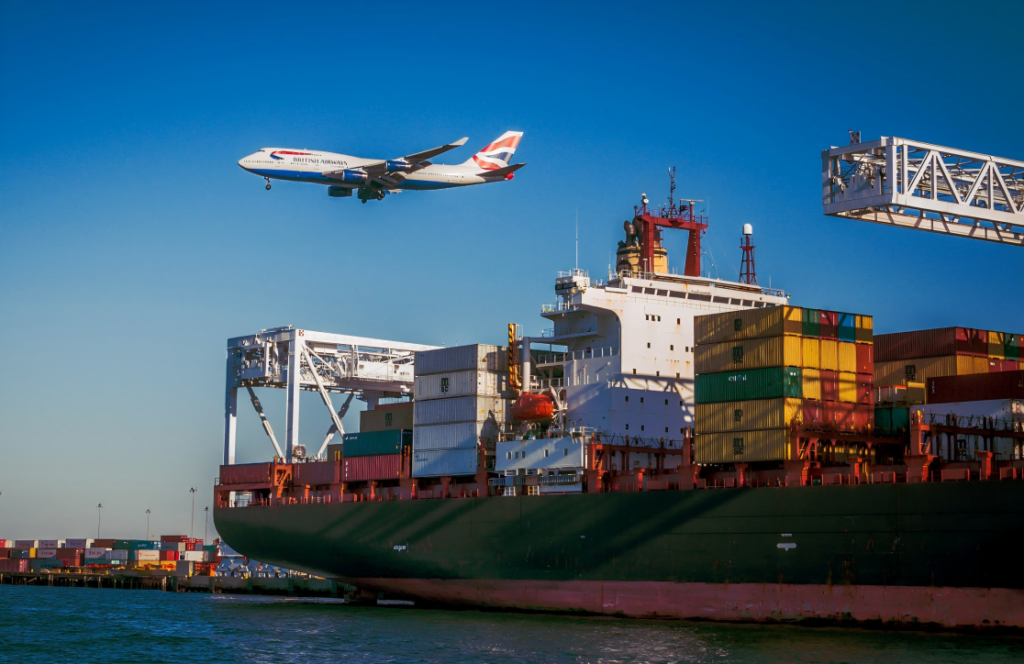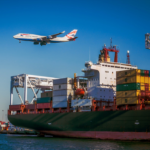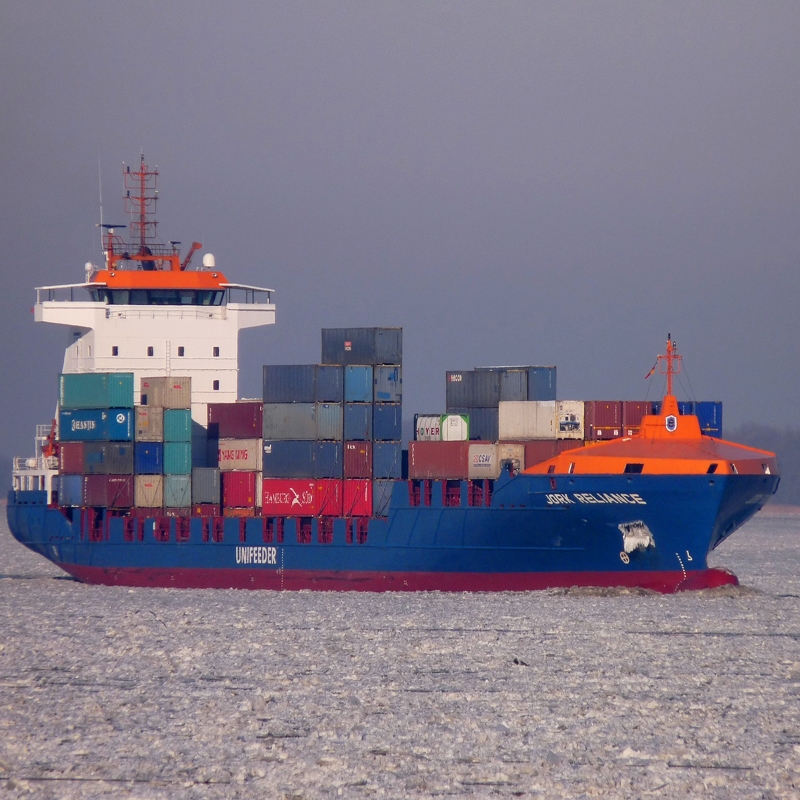Navigating the complexities of shipping goods from China to Qatar can be daunting, especially when it comes to finding the most cost-effective options available. With various shipping methods, such as air freight and sea freight, alongside an array of cost factors to consider, making informed decisions is essential. This guide provides a comprehensive overview of shipping options, cost breakdowns, transit times, and practical tips for choosing the right shipping company. Whether you’re an experienced importer or new to international trade, understanding these elements will help you optimize your logistics strategy and manage expenses effectively.

Understanding Shipping Options from China to Qatar
Overview of Shipping Methods: Air vs. Sea Freight
Choosing between air freight and sea freight is a fundamental decision that impacts cost, transit time, and service reliability.
Air Freight
Air freight is the fastest way to transport goods internationally. It is ideal for high-value, low-volume shipments or time-sensitive goods. Here are some key characteristics:
- Speed: Typically takes 1-5 days for delivery.
- Cost: Generally more expensive than sea freight, but it can be justified for urgent shipments.
- Weight Limitations: Airlines may impose weight and size restrictions, making it less suitable for bulky items.
Sea Freight
Sea freight is the dominant mode of transportation for large volumes of goods. It is particularly cost-effective for bulk shipments. Key points include:
- Cost Efficiency: More economical for larger shipments, especially for items that do not require urgent delivery.
- Transit Time: Usually takes 20-40 days to reach Qatar, depending on the shipping route and port of departure.
- Capacity: Can accommodate larger volumes without weight restrictions, making it a preferred option for bulk cargo.
The choice between air and sea freight will depend on your specific shipping needs, including the urgency of delivery, size, and nature of the goods being transported.
Key Factors Influencing Shipping Costs
Several factors will influence shipping costs when importing goods from China to Qatar. Understanding these elements can help you accurately estimate your logistics expenses:
- Distance: Longer distances typically lead to higher transportation costs, particularly for air freight.
- Weight and Volume: Shipping costs are often calculated based on either the actual weight or the volumetric weight, whichever is greater.
- Packaging: The cost of packaging materials can be considerable, especially for fragile items that require additional protection.
- Customs Duties and Taxes: Import duties, taxes, and customs clearance fees can significantly impact overall shipping costs. It’s essential to understand Qatar’s regulations to avoid unexpected expenses.
- Seasonality: Demand fluctuations during peak seasons can affect shipping rates, particularly in air freight.
- Fuel Prices: Volatility in fuel prices can lead to surcharges, impacting both air and sea freight costs.
Shipping Costs: A Detailed Breakdown
Understanding the specific costs associated with shipping from China to Qatar can help businesses budget effectively and avoid surprises. Below is a detailed breakdown of average shipping costs for both air and sea freight, along with potential hidden fees.
Average Shipping Costs for Air Freight
Air freight costs can vary significantly based on several attributes. On average, international air freight rates from China to Qatar range from $5 to $12 per kilogram. The following table provides a more detailed view of the costs based on different weight brackets:
| Weight Bracket | Estimated Cost per kg |
|---|---|
| 0-100 kg | $8 – $12 |
| 100-500 kg | $5 – $10 |
| 500 kg and above | Negotiable Rates |
Additionally, fuel surcharges and other fees may apply, which can add another $0.50 to $2 per kg.
Average Shipping Costs for Sea Freight
Sea freight is generally more economical, especially for larger shipments. Here are the average shipping costs for sea freight from China to Qatar:
| Container Size | Estimated Cost |
|---|---|
| 20-foot container | $1,000 – $2,000 |
| 40-foot container | $2,000 – $4,000 |
Typically, the cost per cubic meter can range from $50 to $150, depending on the shipping line and seasonality.
Hidden Fees and Additional Charges
Shipping costs are rarely straightforward. Here are some common hidden fees and additional charges that can arise during the shipping process:
- Customs Clearance Fees: These include charges related to documentation and processing your shipment through customs.
- Storage Fees: If your shipment is delayed at the port, you may incur storage costs.
- Insurance Fees: Protecting your cargo with insurance is highly recommended, which can add 1-2% of the total cargo value.
- Handling Fees: These charges can apply at both the origin and destination ports for loading and unloading services.
By comprehensively understanding these aspects of shipping, importers can significantly optimize their logistics and ensure a smoother delivery process to Qatar. For a professional and reliable freight forwarding experience, consider partnering with Dantful International Logistics, which offers cost-effective and high-quality one-stop international logistics services tailored for global traders. Explore more about our services including air freight and customs clearance to enhance your shipping strategy.
Shipping From China to Middle East Countries:
- Shipping from China to Saudi Arabia
- Shipping from China to UAE
- Shipping from china to KUWAIT
- Shipping From China To EGYPT
- Shipping from China to Bahrain
- Shipping From China To Jordan
- Shipping From China To Israel
- Shipping from China to Qatar
- Shipping From China To IRAQ
- Shipping from China to Iran
Transit Times: What to Expect
When importing goods from China to Qatar, understanding transit times is critical for effective planning and inventory management. Different shipping methods offer varying durations, and several factors can influence these times. This section delineates what you can expect regarding transit times for air and sea freight.
Average Transit Times for Air Freight
Air freight is renowned for its speed. Typically, shipments from China to Qatar via air take between 1 to 5 days. The exact duration depends on factors such as the specific departure and arrival airports and the nature of the goods being transported. Here’s a breakdown of average transit times based on different key cities in China:
| Departure City | Estimated Transit Time to Qatar |
|---|---|
| Shenzhen | 2-4 days |
| Shanghai | 3-5 days |
| Beijing | 2-5 days |
| Guangzhou | 2-4 days |
Air freight is ideal for urgent shipments, allowing businesses to maintain a responsive supply chain.
Average Transit Times for Sea Freight
Sea freight is a more economical option for bulk shipments but comes with longer transit times. Typically, shipments from major ports in China to Qatar take between 20 to 40 days, depending on the shipping route and port of origin. The following table provides average transit times based on various Chinese ports:
| Departure Port | Estimated Transit Time to Qatar |
|---|---|
| Shanghai | 25-30 days |
| Shenzhen | 22-28 days |
| Ningbo | 25-35 days |
| Tianjin | 30-40 days |
Sea freight is suitable for non-urgent shipments, allowing businesses to benefit from lower transportation costs.
Factors Affecting Shipping Speed
Several factors can impact the speed of shipping from China to Qatar:
- Weather Conditions: Adverse weather can result in delays for both air and sea freight.
- Port Congestion: Busy ports may lead to longer loading and unloading times, affecting overall transit duration.
- Customs Processing: Delays at customs can add unforeseen time to the delivery process, especially if documentation is lacking or incorrect.
- Choice of Shipping Route: Optimal routing can reduce transit times. Selecting direct routes often leads to faster deliveries.
How to Choose the Right Shipping Company
Selecting the appropriate shipping company is crucial for minimizing costs and ensuring efficient delivery. A combination of evaluating key metrics, understanding the role of freight forwarders, and considering customer feedback can guide your decision.
Comparing Shipping Companies: Key Metrics to Evaluate
When assessing different shipping companies, consider the following metrics:
- Transit Times: Compare the average transit times offered by each company.
- Cost Structure: Analyze their pricing models to identify hidden fees or surcharges.
- Service Options: Evaluate the range of shipping options available, including air, sea, and express services.
- Reliability: Look at on-time performance rates to gauge reliability.
The Role of Freight Forwarders in Cost Reduction
Freight forwarders serve a pivotal role in the shipping process, acting as intermediaries between shippers and carriers. Utilizing freight forwarders can lead to cost reductions through:
- Negotiated Rates: Freight forwarders often have established relationships with carriers, allowing them to negotiate better shipping rates.
- Consolidation Services: They can consolidate shipments to reduce costs, particularly for smaller shipments.
- Expertise in Customs: Freight forwarders are familiar with customs regulations, which can help avoid costly delays and penalties.
Customer Reviews and Reputation: What to Look For
Before finalizing your choice of shipping company, consider customer reviews and the overall reputation of the business. Look for:
- Client Feedback: Review platforms and forums can provide insights into customer experiences.
- Industry Accreditation: Memberships in recognized logistics associations can indicate a company’s commitment to quality service.
- Case Studies: Companies that provide case studies showcasing successful logistics solutions can demonstrate their capability and reliability.
Tips for Reducing Shipping Costs
Reducing shipping costs is essential for maintaining profitability in international trade. Here, we outline effective strategies for cost-effective shipping and the advantages of using freight forwarders.
Strategies for Cost-Effective Shipping
- Consolidate Shipments: Combine smaller shipments into a single larger shipment to benefit from bulk pricing.
- Negotiate Rates: Regularly negotiate shipping rates with your providers to secure better deals.
- Optimize Packaging: Using efficient packaging can reduce weight and dimensions, lowering shipping costs.
- Plan Ahead: Providing ample time for shipping can allow you to choose the most economical options rather than expedited services.
Using Freight Forwarders and Logistics Services
Partnering with a freight forwarder, such as Dantful International Logistics, can greatly enhance your shipping strategy. They offer expertise and a comprehensive suite of services, including:
- Cost-effective logistics planning
- Customs clearance and compliance assistance
- Access to a wide network of carriers and routes
Utilizing a freight forwarder not only streamlines the shipping process but often leads to significant cost savings. To explore your options for door-to-door shipping and other logistics services, consider contacting Dantful today.

Young Chiu is a seasoned logistics expert with over 15 years of experience in international freight forwarding and supply chain management. As CEO of Dantful International Logistics, Young is dedicated to providing valuable insights and practical advice to businesses navigating the complexities of global shipping.





















 Afrikaans
Afrikaans Shqip
Shqip አማርኛ
አማርኛ العربية
العربية Հայերեն
Հայերեն Azərbaycan dili
Azərbaycan dili Euskara
Euskara Беларуская мова
Беларуская мова বাংলা
বাংলা Bosanski
Bosanski Български
Български Català
Català Cebuano
Cebuano Chichewa
Chichewa 简体中文
简体中文 繁體中文
繁體中文 Corsu
Corsu Hrvatski
Hrvatski Čeština
Čeština Dansk
Dansk Nederlands
Nederlands English
English Esperanto
Esperanto Eesti
Eesti Filipino
Filipino Suomi
Suomi Français
Français Galego
Galego ქართული
ქართული Deutsch
Deutsch Ελληνικά
Ελληνικά Kreyol ayisyen
Kreyol ayisyen Harshen Hausa
Harshen Hausa Ōlelo Hawaiʻi
Ōlelo Hawaiʻi עִבְרִית
עִבְרִית हिन्दी
हिन्दी Hmong
Hmong Magyar
Magyar Íslenska
Íslenska Igbo
Igbo Bahasa Indonesia
Bahasa Indonesia Gaeilge
Gaeilge Italiano
Italiano 日本語
日本語 Basa Jawa
Basa Jawa ಕನ್ನಡ
ಕನ್ನಡ Қазақ тілі
Қазақ тілі ភាសាខ្មែរ
ភាសាខ្មែរ 한국어
한국어 كوردی
كوردی Кыргызча
Кыргызча ພາສາລາວ
ພາສາລາວ Latin
Latin Latviešu valoda
Latviešu valoda Lietuvių kalba
Lietuvių kalba Lëtzebuergesch
Lëtzebuergesch Македонски јазик
Македонски јазик Malagasy
Malagasy Bahasa Melayu
Bahasa Melayu മലയാളം
മലയാളം Maltese
Maltese Te Reo Māori
Te Reo Māori मराठी
मराठी Монгол
Монгол ဗမာစာ
ဗမာစာ नेपाली
नेपाली Norsk bokmål
Norsk bokmål پښتو
پښتو فارسی
فارسی Polski
Polski Português
Português ਪੰਜਾਬੀ
ਪੰਜਾਬੀ Română
Română Русский
Русский Samoan
Samoan Gàidhlig
Gàidhlig Српски језик
Српски језик Sesotho
Sesotho Shona
Shona سنڌي
سنڌي සිංහල
සිංහල Slovenčina
Slovenčina Slovenščina
Slovenščina Afsoomaali
Afsoomaali Español
Español Basa Sunda
Basa Sunda Kiswahili
Kiswahili Svenska
Svenska Тоҷикӣ
Тоҷикӣ தமிழ்
தமிழ் తెలుగు
తెలుగు ไทย
ไทย Türkçe
Türkçe Українська
Українська اردو
اردو O‘zbekcha
O‘zbekcha Tiếng Việt
Tiếng Việt Cymraeg
Cymraeg יידיש
יידיש Yorùbá
Yorùbá Zulu
Zulu